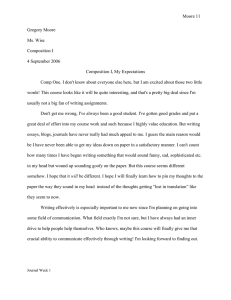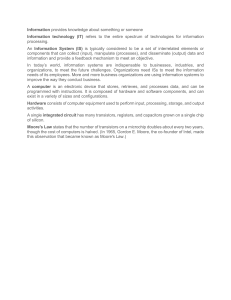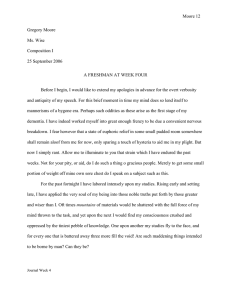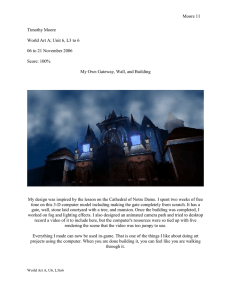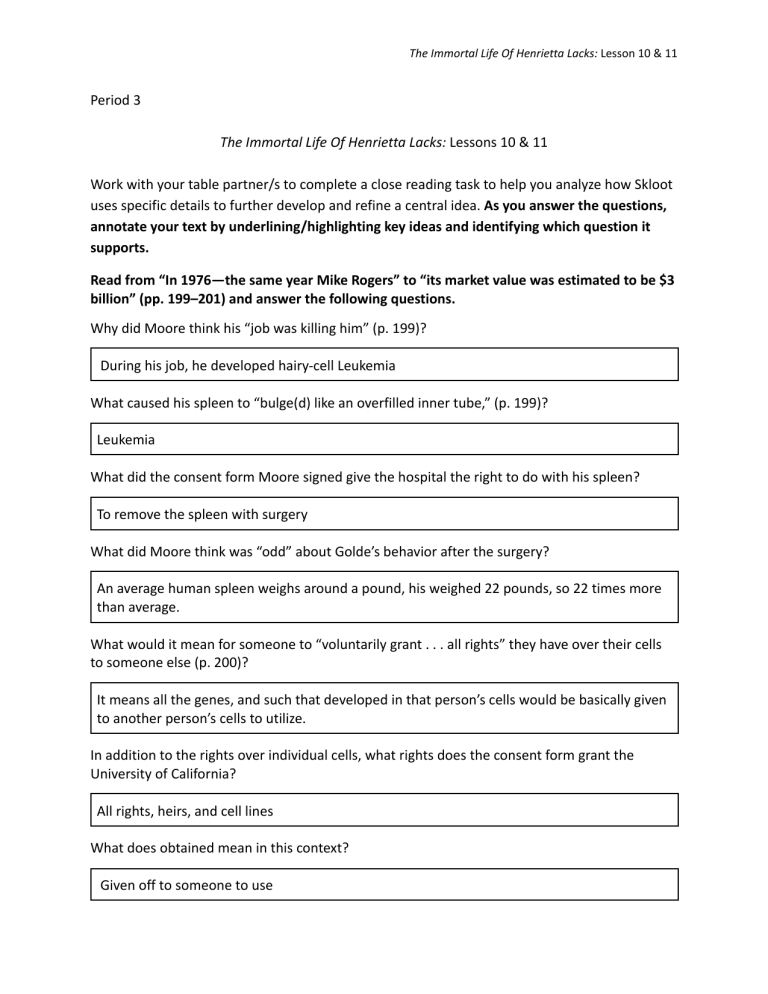
The Immortal Life Of Henrietta Lacks: Lesson 10 & 11 Period 3 The Immortal Life Of Henrietta Lacks: Lessons 10 & 11 Work with your table partner/s to complete a close reading task to help you analyze how Skloot uses specific details to further develop and refine a central idea. As you answer the questions, annotate your text by underlining/highlighting key ideas and identifying which question it supports. Read from “In 1976—the same year Mike Rogers” to “its market value was estimated to be $3 billion” (pp. 199–201) and answer the following questions. Why did Moore think his “job was killing him” (p. 199)? During his job, he developed hairy-cell Leukemia What caused his spleen to “bulge(d) like an overfilled inner tube,” (p. 199)? Leukemia What did the consent form Moore signed give the hospital the right to do with his spleen? To remove the spleen with surgery What did Moore think was “odd” about Golde’s behavior after the surgery? An average human spleen weighs around a pound, his weighed 22 pounds, so 22 times more than average. What would it mean for someone to “voluntarily grant . . . all rights” they have over their cells to someone else (p. 200)? It means all the genes, and such that developed in that person’s cells would be basically given to another person’s cells to utilize. In addition to the rights over individual cells, what rights does the consent form grant the University of California? All rights, heirs, and cell lines What does obtained mean in this context? Given off to someone to use The Immortal Life Of Henrietta Lacks: Lesson 10 & 11 By circling “do” on the consent form, what did Moore give the University of California the right to do? To take some of his blood cells and experiment with them. Why did Moore ask Golde if “any of the follow-up work he was doing had commercial value,” (p. 200)? He asked because of the consent form that was handed to him, beacuse he needed to know all the answers What did the lawyer find when Moore had him investigate Golde? Golde dedicated 7 years of his life to making the Mo Cell Line How much money was Golde going to make from the Mo cell line? 3 Billion dollars in Revenue Consider what you know of Moore’s story so far. How is it similar to Henrietta Lacks’ story? Moore was being used so that Golde can take utter advantage of him. Continue to read from page 201 “Nothing biological was considered patentable until” to page 206 “We want everybody in the world to know about my mother” and answer the following questions. Why was Ananda Mohan Chakrabarty’s patent request first denied? Anandas’s request was denied on the grounds that no living organism could be considered an invention. How did his lawyer argue for (and win) the patent? Since normal bacteria couldnt consume oil, Anandas were not naturally occurring. They existed because of human ingenuity. Why would Moore have benefited from knowing the value of his cells before Golde patented them? The Immortal Life Of Henrietta Lacks: Lesson 10 & 11 His cells had a rare protein called HTLV which is a distant HIV cousin. How is the case of Slavin different from Moore’s case? Slavins case was told to slavin as to be very valuable and useful. Why could Moore not sell his own cells? Since Golde developed a patent. What was Moore “the first” to do? To stake a legal claim for his own tissue and sue for money. Why did “scientists worldwide” panic (p. 203) when Moore filed a lawsuit against Golde? Researchers taking the tissues of patients would be charged with theft. In your own words, describe the sides of this issue as presented in the paragraph on page 204 that begins “Scientists, lawyers, ethicists.” They couldnt commerialize patients sells without consent anymore, leading to less profits.They were also scared of the medical stalling that could potentially happen. What was “ironic” about the judge’s citation of the HeLa cell line “as a precedent for what happened with the Mo cell line” (p. 204)? Because the judges wrote that a person should have extreme ownership of his or her tissue, What was the final verdict of the Supreme Court of California on Moore’s case? Golde appealed and won the case in the bitter end. What did the court say “ruling in Moore’s favor might” (p. 205) do? Explain this in your own words. It'd destroy the economic and research purposes. How were scientists “smug” (p. 205) about the court ruling? Because they achieved not having to go to jail for the thing that should've sent them to jail. What does smug mean in this context? The Immortal Life Of Henrietta Lacks: Lesson 10 & 11 The achievement of not getting arrested by the scientists. How does the new information presented in this excerpt impact your understanding of tissue ownership? Medical research is important.
